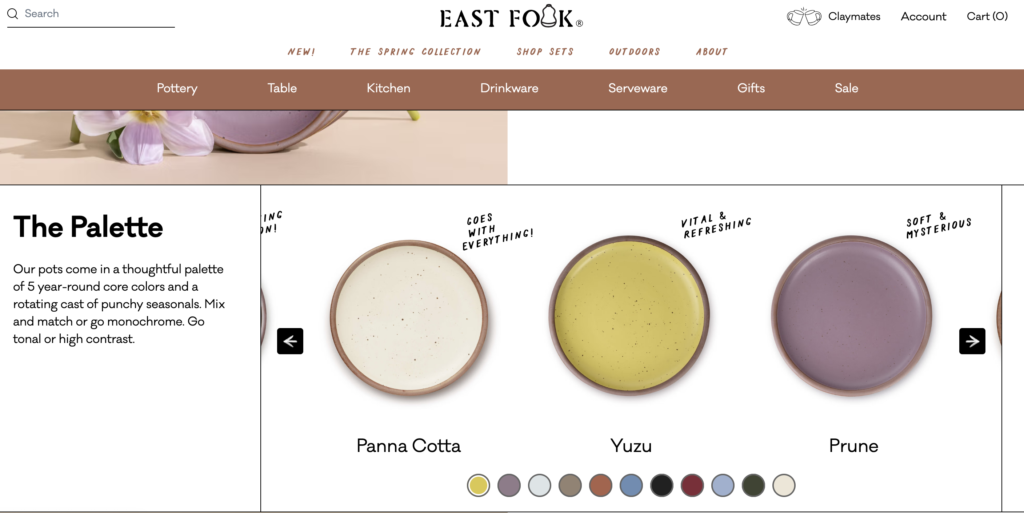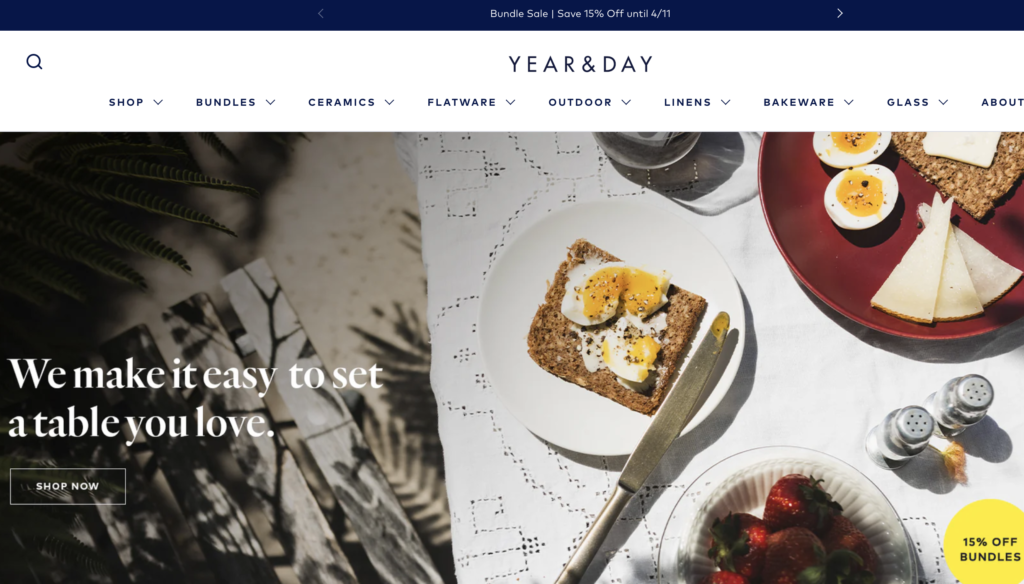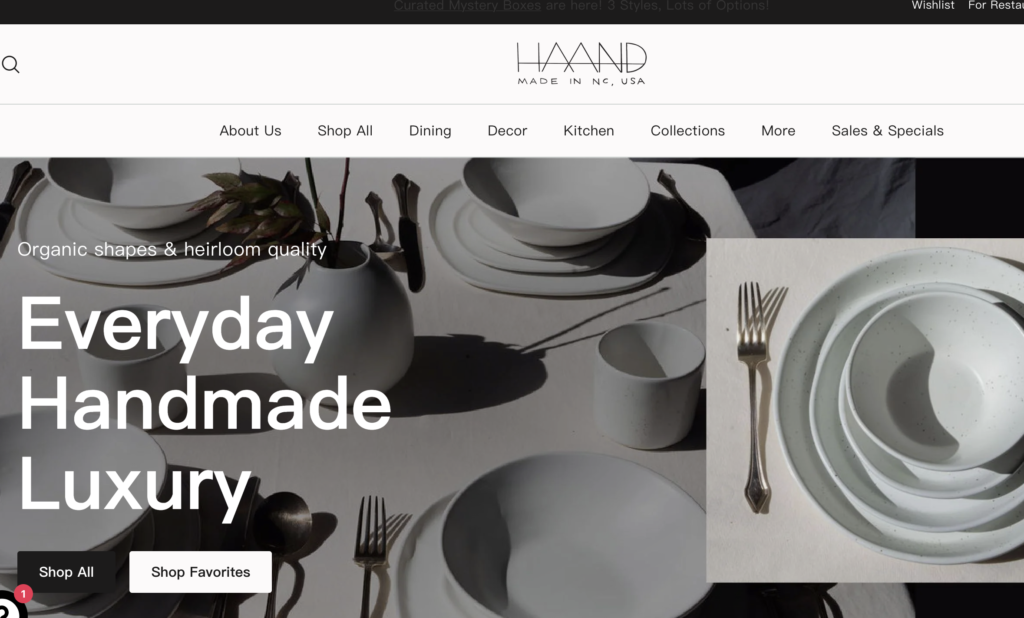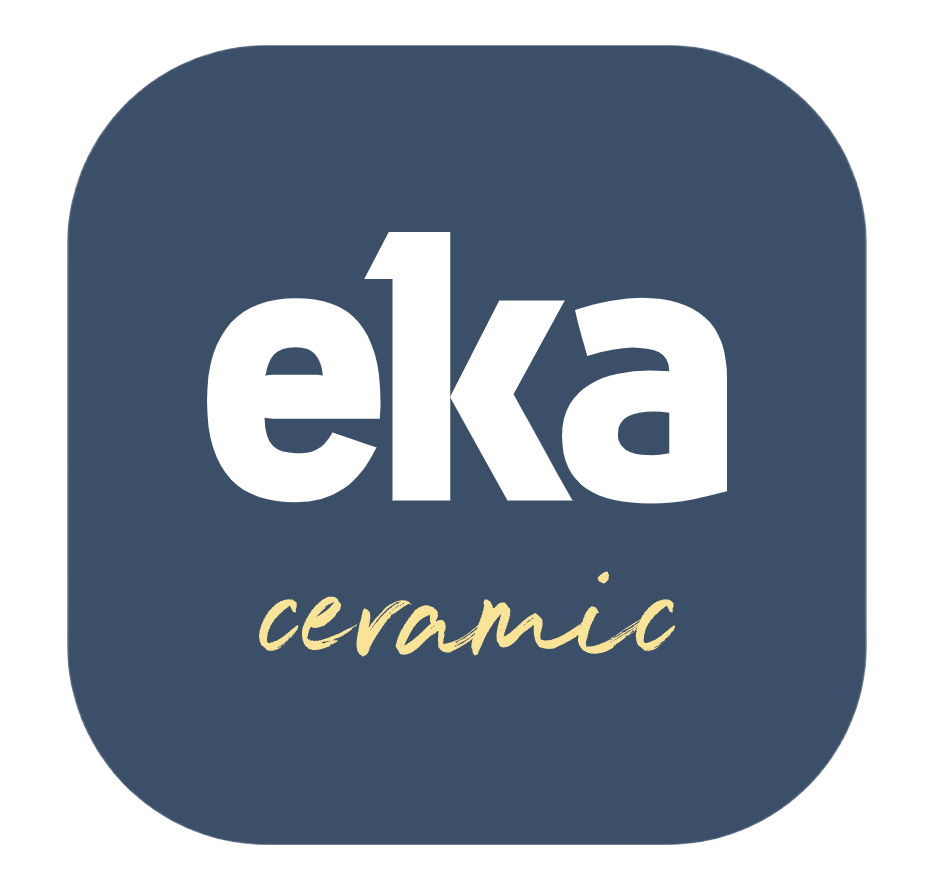In the era of Instagrammable meals and Pinterest-worthy tablescapes, ceramic tableware has quietly taken on a starring role in American homes. Gone are the days when plates and bowls were just functional; now, they’re expressions of personal style, lifestyle aspirations, and even values like sustainability and craftsmanship.
But what’s driving this shift? The answer is simple: social media.
Let’s explore how social media platforms — from Instagram to TikTok — have transformed the ceramic tableware industry in the US, reshaping consumer preferences, sparking viral trends, and influencing what brands design and how they market.
How Social Media Became the Tastemaker of the Table
For many Americans, the first interaction with a new tableware trend isn’t at a department store or in a magazine — it’s on their phones. A TikTok influencer showing off her Sunday brunch setup, or a flatlay of a cozy morning coffee in a handmade ceramic mug on Instagram, can reach millions in minutes.
Here’s how social media is shaping ceramic tableware trends in the US:
- Visual Storytelling: Platforms like Instagram and Pinterest are visual-first, making them ideal for showcasing ceramic designs. Whether it’s earthy matte glazes or speckled finishes, social users want pieces that look good both in person and on camera.
- Aesthetic Lifestyles: Tableware is no longer just about eating — it’s about the lifestyle it represents. Rustic, minimalist, coastal grandmother — these aesthetics come with specific tableware styles, often featured in curated reels or boards.
- Influencer Culture: Influencers and creators have become unofficial brand ambassadors for ceramic trends. A single post featuring a “handmade ceramic coffee cup with thumbprint detail” can cause a spike in search and demand.
- Sustainability Messaging: With Gen Z and Millennials leading the charge, social media has helped raise awareness around sustainable and ethical manufacturing. Handcrafted ceramics or “eco-friendly stoneware dinner plates” are gaining popularity as consumers make more conscious choices.
Comparing Traditional vs. Social Media-Driven Ceramic Tableware Trends
To better understand the shift in consumer behavior, let’s compare the key features of traditional versus social media-driven ceramic tableware trends:
| Aspect | Traditional Trends | Social Media-Driven Trends |
|---|---|---|
| Design Inspiration | Trade shows, catalogs, interior designers | Influencers, TikTok trends, Pinterest boards |
| Color Palettes | Neutral tones, classic whites | Earthy glazes, bold hues, reactive finishes |
| Product Descriptions | Basic specs (size, weight, material) | Emotional storytelling, lifestyle fit |
| Consumer Motivation | Practicality, durability | Aesthetic appeal, personal expression |
| Popular Formats | Traditional dinner sets | Mix-and-match ceramics, hand-thrown mugs |
| Purchasing Channels | Department stores, in-store retail | Instagram Shops, Etsy, direct-to-consumer brands |
Top 5 Ceramic Tableware Brands in the US Riding the Social Media Wave
The American ceramic tableware market has seen a fresh wave of brands emerging — or reinventing themselves — thanks to their savvy use of social media. Here are five standout brands and what sets them apart:
1. East Fork

- Style: Earthy, Southern-inspired ceramic pieces
- USP: Every mug and plate is made by hand in Asheville, NC
- Social Edge: Their iconic mug is Instagram-famous, with product drops that sell out quickly due to influencer buzz
2. Year & Day

- Style: California-cool minimalism
- USP: Mix-and-match dinnerware in muted tones like fog, sand, and midnight
- Social Edge: Their “build your own table” Instagram tool encourages social sharing and personalization
3. Our Place
- Style: Modern, multifunctional table and cookware
- USP: Ethically produced ceramics designed for casual, everyday dining
- Social Edge: Known for viral marketing campaigns, their Always Pan and ceramic plates have influencer endorsement galore
4. Heath Ceramics
- Style: Classic West Coast mid-century modern
- USP: Established in 1948, but still trend-savvy
- Social Edge: Their Instagram doubles as an interior design mood board, blending heritage with contemporary taste
5. Haand

- Style: Fluid, sculptural designs
- USP: Small-batch production in North Carolina
- Social Edge: Story-driven content about artisans and handmade processes appeals to value-driven consumers
Viral Tableware Trends Taking Over TikTok & Instagram
Let’s zoom in on a few current trends circulating across social media that are directly impacting buying behavior:
- Speckled Glazes: Seen everywhere from mugs to dinner plates, speckled finishes lend a cozy, nostalgic feel.
- Asymmetrical Forms: Perfectly imperfect is in. Hand-molded mugs and wabi-sabi bowls are winning hearts.
- Color Blocking: Think two-tone mugs or bowls — they pop in flatlays and attract the design-conscious buyer.
- Thumbprint Mugs: The little thumb dip in the handle? It’s ergonomic and photogenic.
- Mini Plates for Snacks: Ideal for charcuterie boards and morning rituals, often styled with fruit and pastries in aesthetic posts.
How Social Media is Influencing OEM/ODM Tableware Sourcing
Social media trends don’t just impact the end consumer — they also reshape how retailers and e-commerce brands source their products. Here’s how:
- Retailers are looking for low-MOQ ceramic plate and bowl sets that can adapt to fast-moving trends.
- Customizable options for social media-friendly ceramic dinnerware sets are in high demand.
- Many brands now ask for hand-glazed ceramic mug OEM samples that mirror viral aesthetics from platforms like Pinterest.
- There’s growing interest in eco-packaging and sustainable ceramic bowl ODM production to align with brand storytelling on Instagram and TikTok.
FAQ: People Also Ask
Q1: What are the most popular ceramic tableware styles trending in the US right now?
A: Speckled glaze dinnerware, artisan mugs, and asymmetric handmade bowls are top picks — especially those that photograph well for social media.
Q2: Are ceramic plates microwave and dishwasher safe?
A: Most modern ceramic plates, especially those made for the US market, are both microwave and dishwasher safe. Always check the manufacturer’s recommendations.
Q3: Why are handmade ceramic mugs so popular online?
A: They’re unique, photogenic, and often tied to storytelling — like supporting local artisans or sustainable practices. Plus, their irregular shapes are part of the charm.
Q4: What’s the difference between stoneware and porcelain tableware?
A: Stoneware is thicker and has a more rustic, matte finish. Porcelain is finer, often more translucent, and usually has a glossy surface. Social media trends currently favor the earthy look of stoneware.
Q5: Can I start my own tableware brand and sell on Instagram or TikTok Shop?
A: Absolutely. Many brands start with small-batch or OEM/ODM suppliers and grow by leveraging social media for marketing and community building.
Final Thoughts: What This Means for Tableware Brands and Buyers
Social media has blurred the lines between product design, marketing, and lifestyle. For buyers — whether you’re a gift merchant, homeware curator, or e-commerce entrepreneur — staying tuned to visual trends is more important than ever. You’re not just selling a ceramic coffee cup; you’re offering a moment, an aesthetic, a lifestyle.
And for those looking to ride this wave with high-quality, customizable ceramic tableware products, working with a factory that understands both manufacturing and visual trends is key.
EKA is a ceramic tableware factory based in China, offering OEM and ODM services for global home and kitchenware brands. With an understanding of both production precision and social media-driven design needs, EKA helps businesses create tableware that resonates with today’s style-savvy consumers.

